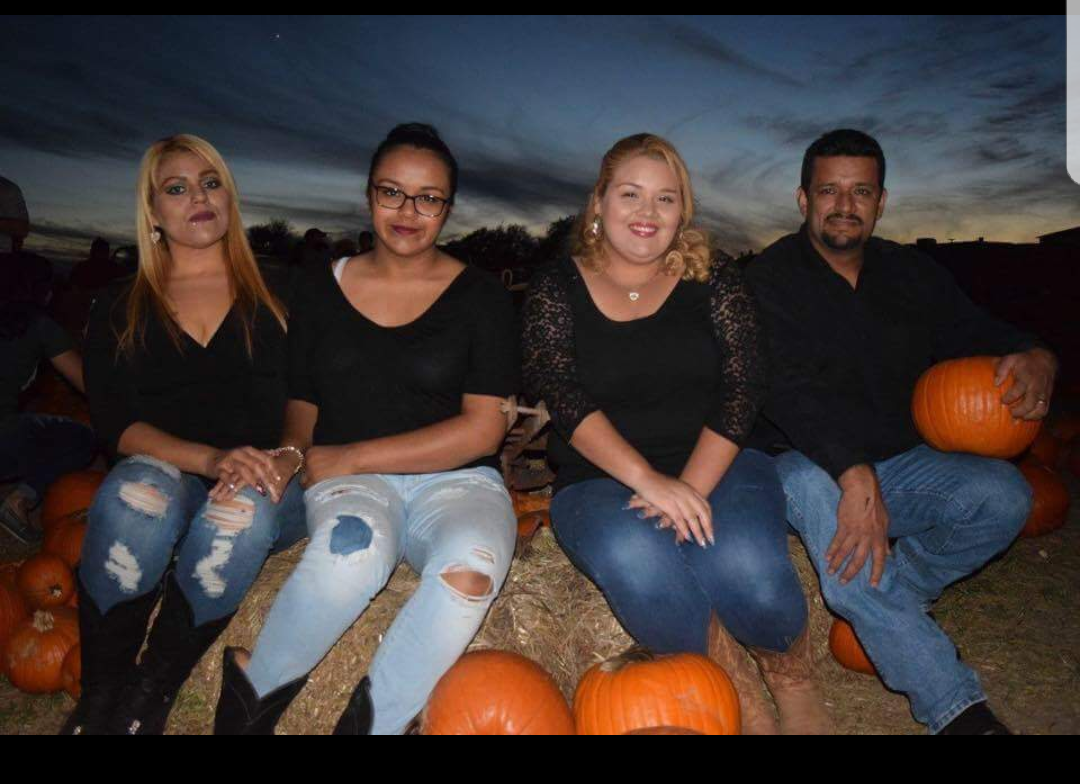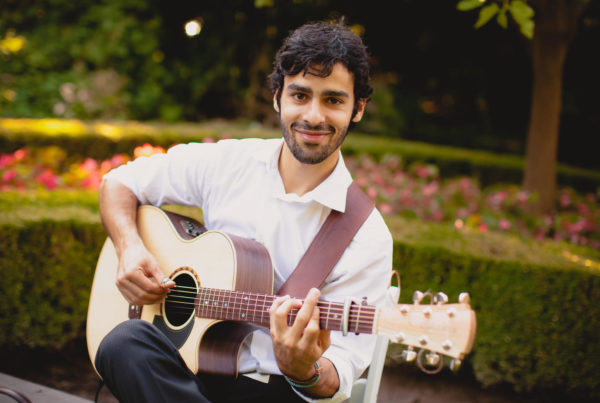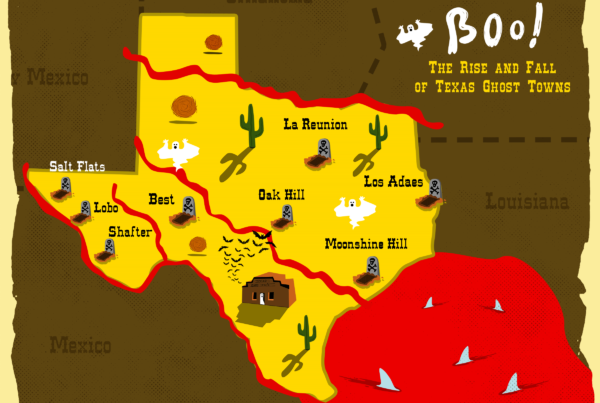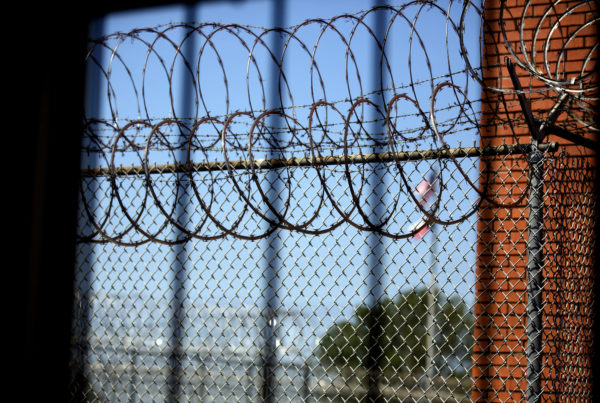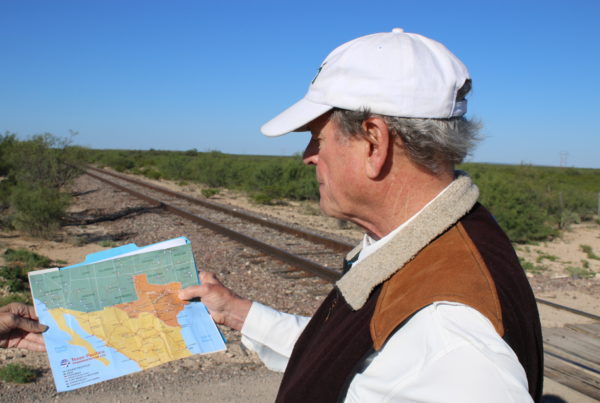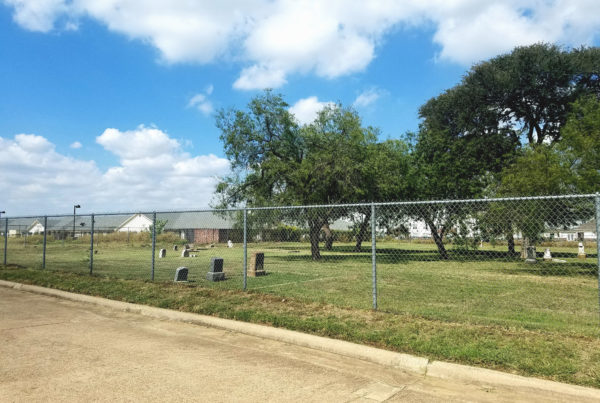Immigration and Customs Enforcement or ICE arrested almost 500 people in just four days of immigration raids last month alone. While that operation did not target Texas, the crackdown has many of the estimated 1.6 million unauthorized immigrants in the state feeling worried.
But it’s not just federal officials that these Texas residents are worried about. They also fear local law enforcement agencies, now that Senate Bill 4, the so-called “show me your papers” law, is in effect.
Like many families, the Esquivels, who live in Central Texas, responded by having “the talk,” about what the parents want their daughters to do if the parents are deported.
The family is gathered in a circle at their home. They are a mom, a dad and their two teenage girls. Mom and the oldest daughter share the same name – Yesenia.
I ask the family about their immigration status. The girls say they were boren in Austin. Like thousands of Texas families, the Esquivels are a mixed-status family. The girls are American. Their parents are from Mexico. They’ve been living in Austin for 20 years – undocumented.
Yesenia, the mom, faces her namesake daughter – her oldest – and tells her; if we get deported, you guys are staying put.
“I want you to cancel every service – everything – get rid of every expense – just keep the lights on in the house – and keep a phone for you and your sister,” she says to her daughters in Spanish.
Keep the house. Find a way to pay the mortgage, she says.
Dad chimes in. “Find a way to stay in school too,” he tells both girls.
“Ever since the two of you were little, you’ve always enjoyed school. You are educated girls. Keep up with school, even if we’re gone. Because that’s something I was never able to do – stay in school,” he says in Spanish.
“If I were to leave, I have friends I’ve talked to. They’ve agreed to help you girls come up with your first mortgage payment,” the mom says. “I can set you up that way – our friends will set you on the right track – but this is so tough. You may seem old enough but we’ve never been apart – this is so hard. Anyway, that’s the plan.”
The younger daughter, 15-year-old Betzayda, is beside herself. Her fisted hands are on her lap.
“This – it doesn’t make me cry of sadness – it makes me cry of angriness,” she says.
Nineteen-year-old Yesenia tries to take it all in.
“Hearing my parents tell me: ‘oh, if this were to happen you are going to take care of your sister and have custody of her.’ Knowing that all this is possible, is kind of terrifying,” Yesenia says
Their father, Tomás, is frustrated. Some of his frustration is aimed at Texas Gov. Greg Abbott.
“I’ve cooked for him, you know? He likes eating at the restaurant where I work,” Tomás says. “And, before he was governor – when he was AG – we thought he was going to be a good governor because he seemed to love Hispanics and he truly earned the Latino vote. How things have changed! Why did he change? I challenge him [Abbott] to visit construction sites and restaurants. Who are the people who work the hardest and make the least? We only come here to work. Stop those laws. Get to know me as I am.”
Yesenia asks her husband “Isn’t the governor’s daughter the same age as ours?”
Yes, Audrey Abbott is just months older than the Esquivel’s oldest daughter.
“I’d like to touch his heart,” she says. “You are a fighter, governor, you fought to be where you are, you fight for your family – I’m a fighter too doing the same things as you.”
Daughter Yesenia fears that no one will listen to what her parents are saying. “How do you love a country that you love and you know – but the country is not loving you back?”
If this were their last day together, Tomás and Yesenia want the girls to know all they mean to them.
“I believe you are the greatest gift I ever got,” Tomás says.
“My greatest privilege is to be your mother and I thank God to have had you,” Yesenia says.
The family embraces.
Today they are together. Tomorrow – who knows?
Will Yesenia get the master’s degree in education she dreams of? Will Betzayda become the OB-GYN she wants to be? The most pressing question is: will their parents be deported? Because so many things depend on the answer.


